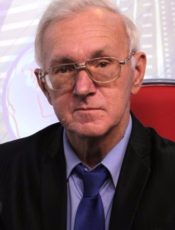The talks between Russian President Vladimir Putin and King Abdullah II of Jordan that took place in Moscow on 24 November have become an important factor in the deteriorating international situation in the Middle East. The two leaders discussed bilateral cooperation, the strengthening of counter-terrorism, the joining of forces to combat the terrorist group known as the Islamic State (IS), and ways to overcome the Syrian crisis.
The Syrian crisis has directly affected Jordan, primarily in relation to the influx of huge numbers of refugees into the country. At present, there are estimated 1,400,000 Syrian refugees in Jordan, which amounts to over a sixth of the country’s population. As a consequence, the Jordanian authorities are currently facing a number of complex problems.

Firstly, the construction of refugee camps and the urgent help needed by these refugees is placing a heavy burden on Jordan’s budget. Secondly, Syrian refugees that are able to work are taking jobs and creating competition for the Jordanians, while the problem of unemployment in the country is already acute. Thirdly, the refugees include many who embrace radical Islamism, are former militants or simply criminals. The situation is complicated by the fact that ‘moderate’ Islamist organisations can operate legally in Jordan and it is not that easy to distinguish the members of these organisations from radicals, including members of the Muslim Brotherhood who sympathise with IS. It is becoming increasingly difficult for Jordan’s law enforcement agencies to control the security situation in the country, especially as IS leaders are openly threatening to extend their military expansion into Jordan.
In many respects, the Jordanian economy depends on US aid and Amman has traditionally followed US policy. Jordan joined the US-led coalition and, until very recently, statements made by Jordanian officials on the Syrian issue did not differ from what was being said in Washington. Amman’s position has recently started to change, however. This has largely been facilitated by the success of Russian air force operations in Syria. Jordan has stated its willingness to coordinate its own military actions with Russia and there are plans to set up an intelligence and logistics centre in Amman similar to the one set up in Iraq. In an interview with the TV channel Euronews, King Abdullah II spoke of the important role being placed by Russia in the fight against IS and called for the West to cooperate with the Russian military more closely, stating that all the issues regarding the political leadership of Syria should be decided after the terrorist groups had been suppressed. King Abdullah II also noted that the IS militants carrying out barbaric crimes against civilians had nothing in common with the Muslim religion and were just «igniting a civil war in Islam».

The successes of the Syrian army and the assistance being provided by Russia gives hope to the Syrian people that peace will return to their country. I have been to Syria many times since the start of the conflict, most recently in November 2015, and I can say that despite the four and a half years of heavy fighting against terrorist groups supported by the West, Turkey and the monarchies of the Persian Gulf, the country continues to exist and develop. The Syrian government has adopted a programme to rebuild its industrial and energy infrastructures and is formulating plans for the country’s development in the postwar period. At Damascus university, where I had the opportunity to give a lecture in November 2015, 130,000 students continue to study. There are a total of 27 universities in Syria and only four of these, which are in areas occupied by militants, are not currently functioning. The Syrian Writers’ Association is continuing its work and regularly publishes its own newspaper and four magazines, and in areas that have not been captured by Islamist militant groups, businesses are operating as before.
The liberation of Syria from terrorists would happen much more quickly if 75 per cent of the support being given to the ‘jihadists’ – people, weapons, ammunition – was not being smuggled across the Turkish border. The oil seized by militants in Syria and Iraq is also being smuggled through Turkey. IS leaders and high-ranking Turkish middlemen are making huge profits from this bloody business, and it is from these that Russia received «a stab in the back», as Putin referred to the attack on a Russian jet brought down in Syrian airspace in his meeting with the King of Jordan.









